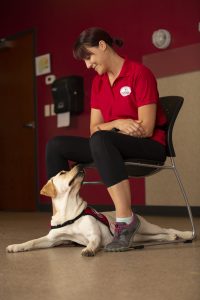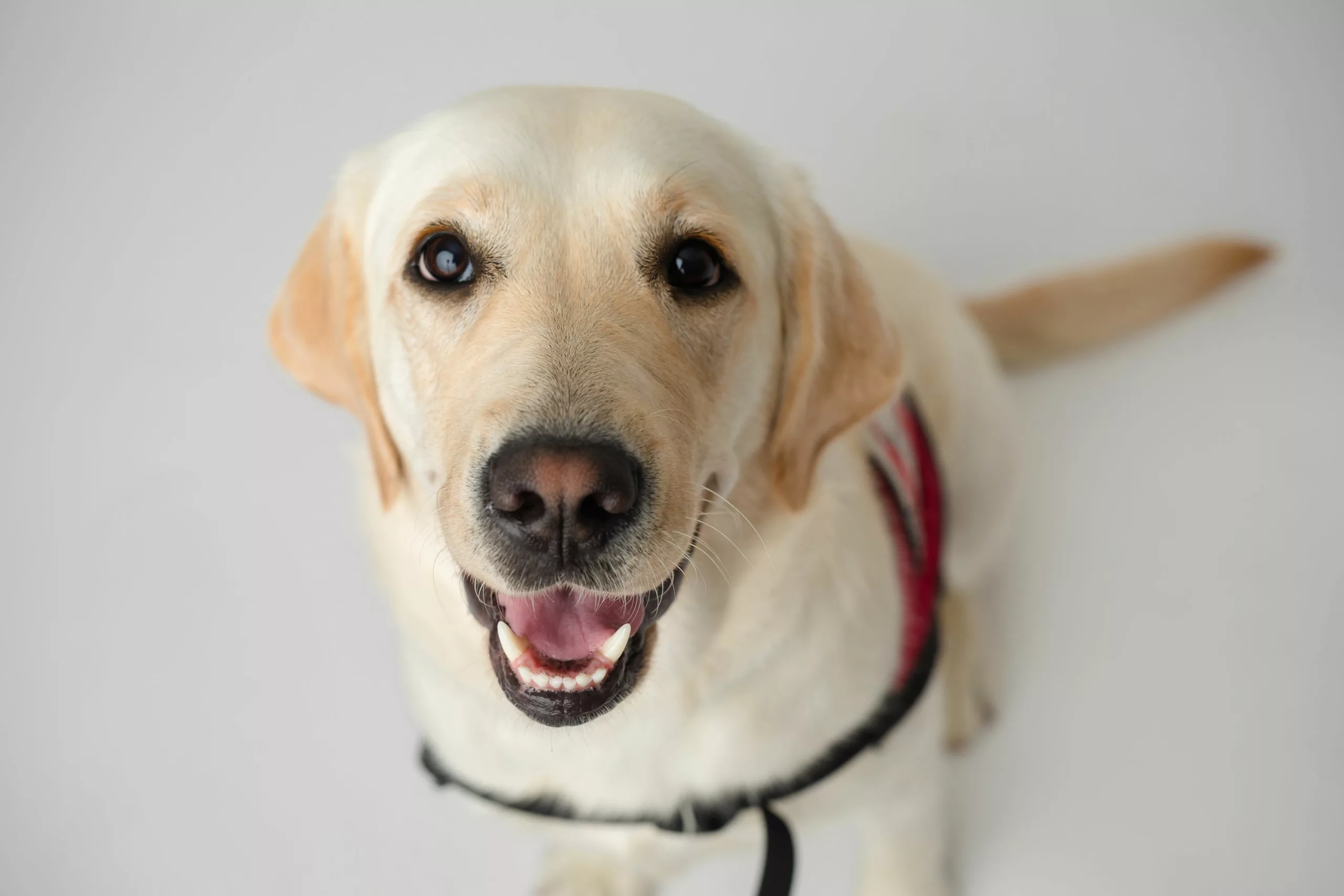Can Do Canines knows that each person with a disability has unique needs. Our philosophy is that their assistance dogs should be trained to meet their needs, and the client’s training process should be tailored to their abilities. This is why Can Do Canines custom trains each dog for a particular client and offers individual training for every team.
 Custom Training
Custom Training
Many organizations train each dog the same way. For example, a future Mobility Assist Dog will learn countless tasks, but he will not end up needing all those tasks for his partner. This method is inefficient, as it trains unnecessary skills without personalizing the training for a specific client’s needs.
Can Do Canines teaches dogs specific skills that will help their future partner. Clients have unique needs, whether that be a dog who only walks on their left side, a dog who can adjust the foot plates on their wheelchair, or a dog who responds to sign language. Can Do Canines trains dogs to fill those individual needs for clients.
Bella uses a power wheelchair that she moves with a joystick. Sometimes her arm will get stuck, and because she has limited use of her shoulder, she is unable to move it back into place. Mobility Assist Dog Blaine was trained to help with this particular need. Blaine nudges the back of Bella’s arm to move it into place so Bella can reach her joystick.
Individual Team Training
Other organizations conduct their team training as a group, meaning a number of newly-matched teams learn to work with their partner at the same time. This is typically two weeks of 8-hour days. For many people with disabilities, this isn’t feasible. Some clients don’t have the stamina to train all day and become fatigued more easily than others. Some clients aren’t able to get up and begin training until they’ve gone through their morning therapies. A strict timeline is one more obstacle to getting an assistance dog.
Can Do Canines takes an individual team training approach. Clients work on an individual basis with a staff trainer at our facility on a schedule that works for them. After a few days, they go back to the comfort of their home and continue training for another eight weeks with regular check-ins from their trainer.
Can Do Canines graduate Kyle originally applied to another organization that conducted group team training. This was an obstacle for Kyle. The travel and long days would have been too tiring for him, and he wouldn’t have been able to get an assistance dog from that organization.
People with disabilities experience barriers in their lives. We don’t believe in adding more of them through cookie-cutter training methods and group team training. Because of your support, we’re able to gear our training towards the needs of our clients, making our dogs more accessible to people with disabilities.





